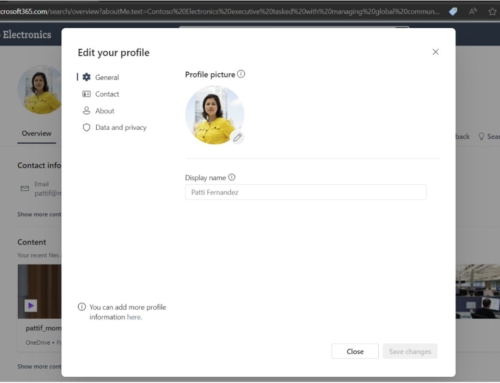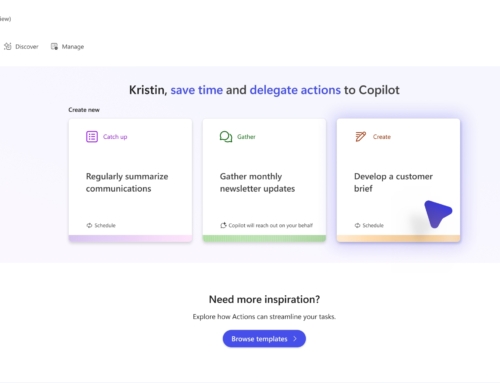Artificial intelligence (AI) and automation have continued to change the information management landscape and Microsoft 365 Copilot promises to be a paradigm shift. When discussing adoption of Microsoft 365 Copilot with clients, no matter how far off on the horizon that is, we cannot highlight enough the importance of preparation, strategy, and data management for successful implementations.
In this post we’ll explore key trends from 2024 and insights for 2025, with a focus on preparing for Microsoft 365 Copilot and the future of AI.
Going Paperless
The digital workplace makes the headlines but the Market Momentum Index by M-Files found that 45% of business processes still rely on paper. This paper dependence not only slows efficiency but can also seriously impede implementations of Microsoft 365 Copilot, which depend on clean, accessible datasets.
First steps to going paperless:
- Implement a document management system like Microsoft SharePoint.
- Digitize paper documents using optical character recognition (OCR) technology to make them searchable.
- Explore automating business processes with Power Platform that involve paper documents.
Before adoption of Microsoft Copilot is even considered, organizations must prioritize digitization efforts, not just to streamline workflows but to unlock data trapped in physical documents.
Adopting Automation
The gap between automation capabilities and organizational readiness was an issue in 2024. AIIM’s 2024 report reveals that only 3% of organizations have achieved advanced workflow automation, including AI and Robotic Process Automation (RPA).
Copilot, with its seamless integration with Microsoft 365 tools, can support efficiency in automating repetitive tasks, streamlining collaboration, and transforming decision-making.
To maximize the potential of Copilot, organizations should:
- Ensure workflows are well-documented and structured to facilitate seamless integration with automation tools.
- Automate simple, repetitive tasks to lay the groundwork for more sophisticated AI applications.
- Confirm that systems across the enterprise can communicate effectively to support AI-driven workflows.
Data Quality
While many organizations are experimenting with or implementing AI, data quality remains the highest barrier to Copilot entry. High-quality, well-organized structured and unstructured data is essential for Copilot to deliver meaningful results.
Instead of attempting to overhaul all data at once, success lies in:
- Identifying all data sources and setting up a centralized data repository.
- Focusing on cleaning and organizing datasets tied to specific use cases.
- Developing scalable methodologies for improving data quality over time.
- Utilizing Microsoft Purview and other data governance tools within Microsoft 365 to ensure compliance, security, and readiness for Copilot.
The Role of Employee Engagement
User adoption is critical to the success of AI initiatives. Microsoft 365 Copilot is only as effective as the employees using it. Engaging employees involves:
- Equipping teams with the skills to use Copilot, focusing on how it can simplify their workflows.
- Incorporate user feedback into implementations to refine and improve the tools.
- Communicate the benefits of AI to alleviate concerns about being replaced by AI and build excitement around new opportunities.
Preparing for Microsoft 365 Copilot: A Strategic Priority for 2025
Microsoft 365 Copilot has the potential to transform day-to-day work. However, organizations must proactively address common challenges to maximize its impact:
- Focus on Data Preparation: Poorly maintained data will limit Copilot’s effectiveness. Regular audits and updates to data governance practices are essential.
- Integrate Thoughtfully: Ensure Copilot’s capabilities align with business goals, avoiding unnecessary complexity.
- Educate End Users: Empower employees to harness Copilot’s potential through ongoing training and resources.
By preparing for and embracing tools like Microsoft 365 Copilot and staying ahead of AI trends, organizations can position themselves not just to keep pace with change but to lead in the era of intelligent information management.
Whether your organization is ready to adopt AI today or that jump is years away, we’re here to help you on your information management journey.
Explore our Modern Workplace services or contact us to get the conversation started.
Subscribe
Join over 5,000 business and IT professionals who receive our monthly newsletter with the latest Microsoft 365 tips, news, and updates.









